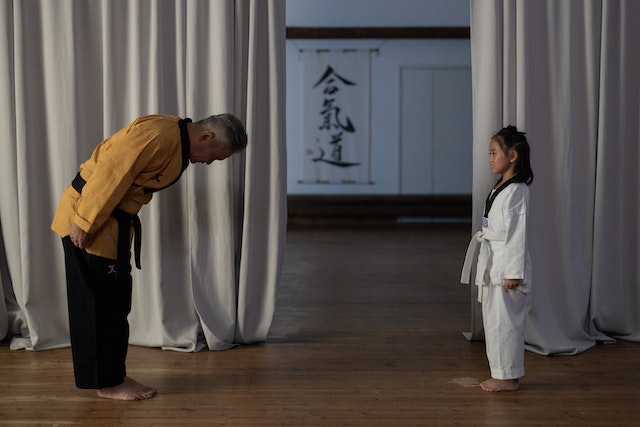Introducing children to martial arts can be an enriching and rewarding experience. Karate, with its focus on discipline, physical fitness, and self-defense skills, is a popular choice for many parents. However, a common question that arises is, “At what age can a child start karate?” This article aims to provide insights into the best age to begin karate lessons and the benefits it can offer to young learners.
Ideal Age to Start Karate
Karate is a martial art that can be enjoyed by individuals of various age groups, including children. While there is no strict age limit for starting karate, many instructors and experts recommend that children begin their karate journey around the age of 5 to 7 years old. At this age, children have developed the physical coordination and cognitive skills necessary to engage in structured activities and follow instructions effectively.
Starting karate at this age allows children to lay a strong foundation for their martial arts practice while reaping the numerous developmental and health benefits it offers. However, it’s important to keep in mind that every child is unique, and factors such as individual interests, maturity level, and physical readiness should also be taken into consideration.
Benefits of Starting Karate Early
1. Physical Fitness: Karate promotes physical activity, agility, and coordination. Starting at a young age helps children develop fundamental motor skills and a strong sense of body awareness.
2. Discipline and Focus: Karate teaches children the importance of discipline, respect, and concentration. These qualities can positively impact their behavior, academic performance, and overall attitude.
3. Self-Confidence: As children progress in their karate training, they gain a sense of accomplishment and self-confidence. Overcoming challenges and mastering new techniques can boost their self-esteem.
4. Self-Defense Skills: Karate equips children with practical self-defense techniques and strategies, empowering them to handle difficult situations and stay safe.
5. Social Skills: Karate classes provide opportunities for children to interact with peers and learn valuable social skills, such as teamwork and cooperation.
6. Stress Relief: Karate offers a healthy outlet for releasing energy and managing stress, contributing to a balanced and emotionally resilient child.
Readiness and Considerations
Before enrolling a child in karate classes, it’s essential to assess their readiness and ensure a positive experience:
1. Interest: Gauge your child’s interest in martial arts. Talk to them about what karate entails and see if they express curiosity or excitement.
2. Maturity: Consider your child’s emotional maturity and ability to follow instructions in a structured environment.
3. Physical Readiness: While karate is adaptable to various fitness levels, ensure your child is physically prepared for the activities involved.
4. Trial Classes: Many dojos (karate training centers) offer trial classes. Attend one to gauge your child’s comfort level and enthusiasm.
5. Instructor: Choose a reputable instructor or school with experience in teaching young children. A positive and patient instructor can make a significant difference in your child’s karate journey.
Conclusion
The ideal age for a child to start karate is around 5 to 7 years old. This age range ensures that children have developed the necessary physical and cognitive skills to engage in structured martial arts activities. Starting karate at this age offers a range of benefits, including physical fitness, discipline, self-confidence, and social skills. However, individual readiness and interest should also be taken into account before enrolling your child in karate classes. By providing the right guidance and support, you can help your child embark on a fulfilling and enriching journey in the world of karate.
FAQs
1. Can younger children start karate?
While the recommended age to start karate is around 5 to 7 years old, some dojos offer specialized classes for even younger children, often focusing on basic motor skills and coordination.
2. Is karate safe for children?
Yes, when taught by qualified instructors and practiced in a controlled environment, karate is generally safe for children and can offer numerous developmental benefits.
3. What if my child loses interest after starting karate?
It’s normal for children to explore different activities. If your child loses interest, you can explore other martial arts or physical activities that align with their preferences.
4. Can karate help with behavior issues?
Karate’s emphasis on discipline and focus can positively impact behavior, but it’s essential to address any underlying issues through open communication and, if necessary, professional guidance.
5. How do I find a suitable karate school for my child?
Research local dojos, read reviews, and attend trial classes to assess the instructor’s approach and the overall atmosphere of the school. Look for instructors who specialize in teaching children and prioritize safety and character development.

